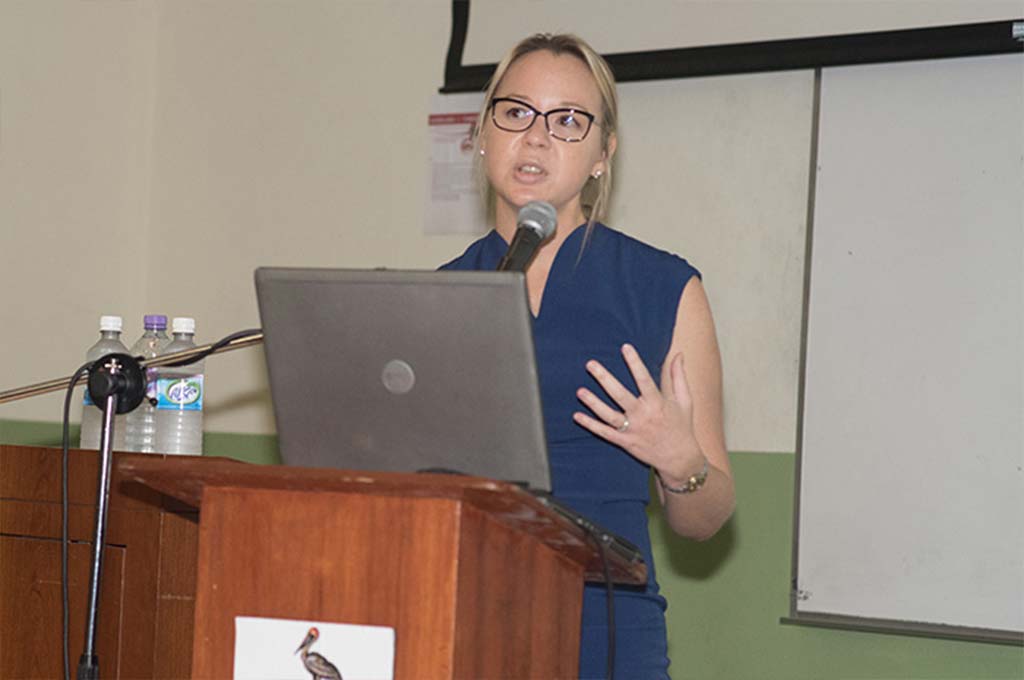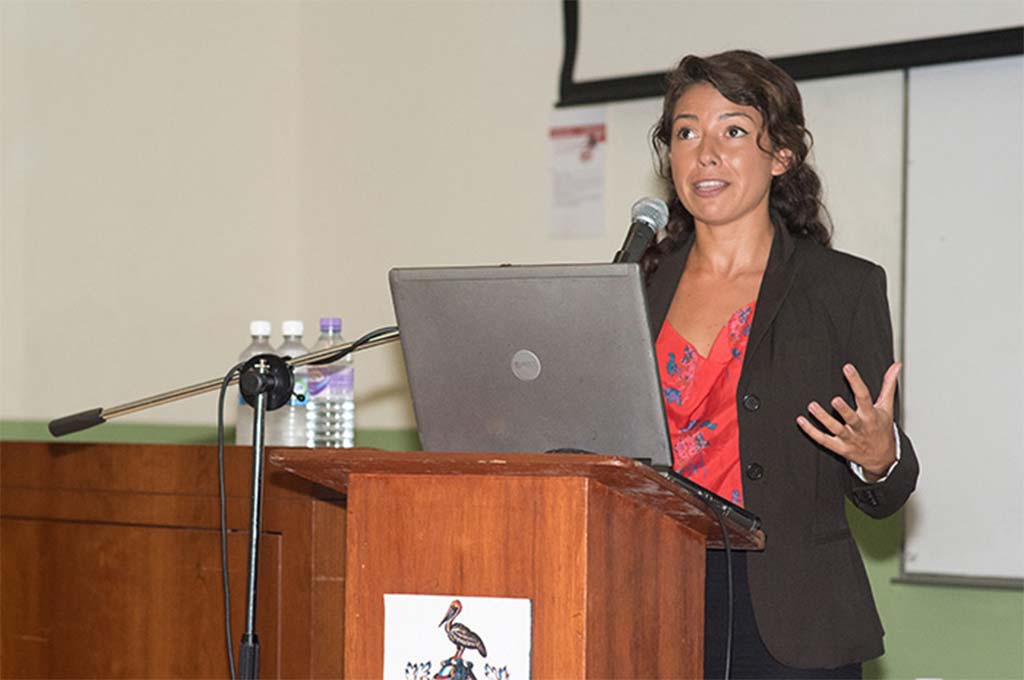- July 11th, 2016
- /
- NCD Stories
- /
- 0 Comments
- /
- Getting fitter: why we all plan to start ‘tomorrow’

Christina Howitt Lecturer, Chronic Disease Research Centre
Getting fitter: why we all plan to start ‘tomorrow’
The vast majority of Barbadians, six out of 10 men and an alarming nine out of 10 women, get too little exercise and this is having severe consequences for the health of the nation.
At a recent public meeting, a panel including fitness experts, town planners, civil society organisations, physical education and health promotion officers and a packed audience came together to explore why so many Barbadians are not physically active and what can be done about it.
“Low fitness causes more deaths than hypertension, smoking, diabetes, high cholesterol and obesity. We all need to work together to make sure that we increase activity levels. It’s the best opportunity we have to improve health in Barbados.” Christina Howlett, CDRC lecturer
Hosted by the Chronic Disease Research Centre (CDRC), the event entitled Physical activity: why we all plan to start ‘tomorrow’, revealed information about just how important fitness is to health.
During her opening presentation, Christina Howlett, a CDRC lecturer, stated that lack of activity leads to a high number of deaths. “Low fitness causes more deaths than hypertension, smoking, diabetes, high cholesterol and obesity,” she noted, adding, “We all need to work together to make sure that we increase activity levels. It’s the best opportunity we have to improve health in Barbados.”
A serious NCD epidemic
And this really matters given the extent of the NCD epidemic in the country: one in five people is diabetic, one in three has hypertension and two thirds are overweight (rising to three quarters of women). It was stressed that activity can reduce the risk of colon and breast cancer by at least 50% and type II diabetes by almost 60%. In addition, active people in their 80s have a lower risk of death than inactive people in their 60s.
Ms Howlett suggested a few realistic options to get people fitter. According to the World Health Organization, we should be doing 150 minutes of moderate activity each week: we need to raise our heart rates and breathe faster. One of the easiest ways to do this, said Ms Howlett, would be to promote walking, described as “near perfect” exercise. A coordinated network of walking groups with links to other health promotion efforts could be set up.
Women need to get moving
Miriam Alvarado, Fulbright Scholar and research assistant at CDRC, explored the issue of why women are much less likely to be active than men, highlighting a range of the types of women she has encountered in her research. The two most worrying were the woman who puts her own needs last, giving everyone else priority, and the woman who is simply not interested and is fatalistically leaving everything “in God’s hands”.

Miriam Alvarado Research Assistant, Chronic Disease Research Centre
“We all want to start tomorrow. I struggle with it myself,” Ms Alvarado admitted. She maintained that a culture of activity needs to be fostered in Barbados where “being active is truly Bajan.” An enabling social and physical environment is required where communities come together to support each other in fitness drives and there are local spaces, such as well-maintained parks, that encourage activity.
“We have members from nine years old to 59 years old… We’re getting out into the villages and the communities. It doesn’t have to be anything strenuous: you can get together and have a lot of fun.” Heather Drakes, Get Women Moving
The Get Women Moving campaign offers one such community-based solution. The classes are low cost, dance-focused and fun. Established in April 2016, 500 women have already attended classes. According to Heather Drakes, a fitness leader helping to spearhead the project, “We have members from nine years old to 59 years old… We’re getting out into the villages and the communities…. It doesn’t have to be anything strenuous: you can get together and have a lot of fun.”
Teeming with ideas
There was a lively question and answer session to round off the evening with lots of audience participation and ideas, such as developing public adult play spaces; car free days; doctors officially prescribing exercise; education to highlight the mental health benefits of physical activity; concentrating on ensuring that all children benefit from PE in schools, not just top athletes; and the need to encourage parents to recognise that PE can enhance academic performance.
As moderator, CDRC Director Dr Alafia Samuels hoped that the imaginative suggestions and commitment emerging from the meeting would be translated into action to get Barbadians moving more.
Video Interviews:
- Miriam Alvarado – Research Associate Chronic Disease Research Centre watch here.
- Christina Howitt – Lecturer Chronic Disease Research Centre watch here.
- George Browne – Deputy Chief Town Planner Town & Country Planning Development Office Barbados watch here.
For a new evidence brief on levels of physical activity in Barbados click here.



